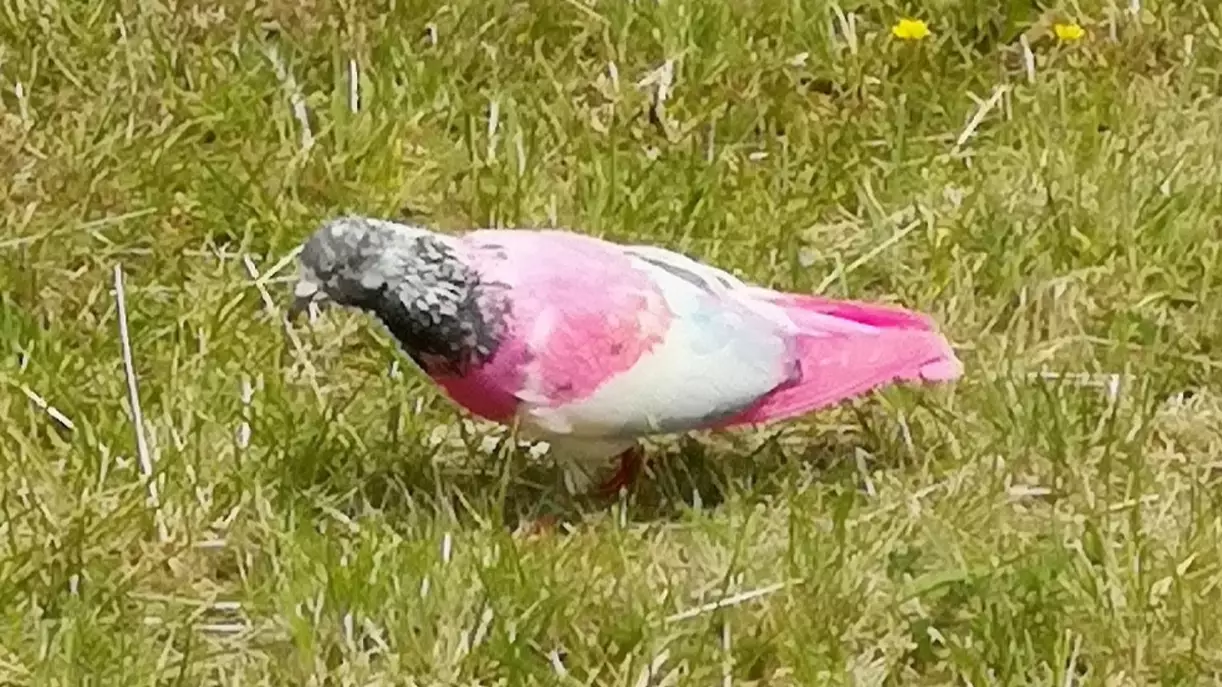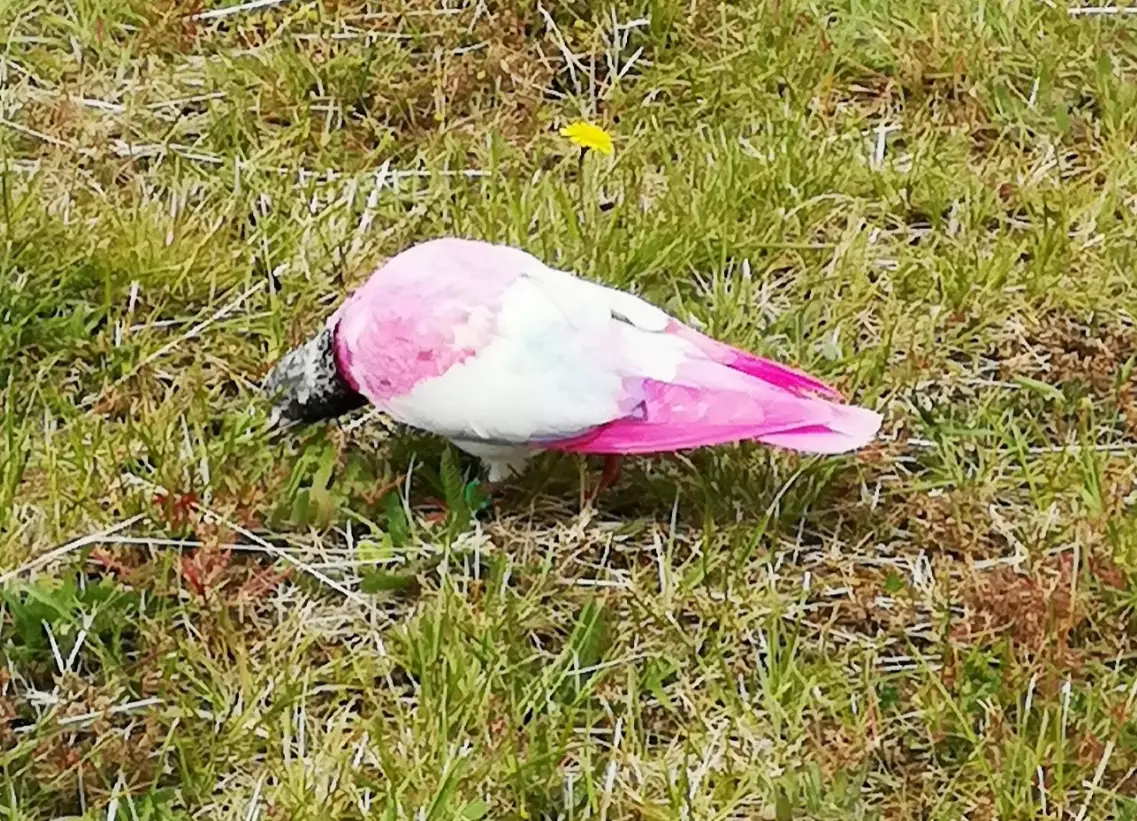
Pigeons aren't exactly known for being the most exciting or elegant of birds. They're usually found pecking at a stale meal deal sandwich that some poor office worker dropped on the floor.
However, one man in Bracknell stumbled across a pigeon that was decidedly more flamboyant than the grey-scale city dwellers we know and hate, and that's because it just so happened to be bright pink.
Ben Hanks, 26, spotted the exotic-looking creature scavenging in a business park in the Berkshire town.
Advert
While the bird hasn't been officially identified yet, it looks similar to the Nesoenas Mayeri pink pigeon, which is native to Mauritius.
There are fewer than 500 of the brightly-coloured birds left, but it seems one may have made its way to Arlington Square Business Park on 17 June.
Accountant Ben was enjoying a lunch outside with a friend, when he clocked the unusual bird searching for food near his office.

Ben, from Arborfield, Berkshire, said: "I have never seen anything like this before and we were both very confused when we first spotted it.
Advert
"I reached for my phone to take a photo immediately as I didn't think anyone would believe me if I didn't have evidence.
"We did find it very funny, but then tried to come to some form of explanation behind its colouring.
"There were no other pigeons or birds around, just this one pecking at the ground. It didn't seem bothered by us at all."

The pink pigeons are listed as vulnerable by conservationists, and are almost exclusively found living in Mauritius and Madagascar, in the Indian Ocean.
Advert
The birds were on the verge of extinction in 1991, when numbers slumped to as low as 10.
Thankfully, over the years, numbers of the tropical bird have steadily increased, and now it's through that there are around 500 living in the wild.
There have been previous reports of pigeons changing colour after eating pink food - much like with flamingos - or of their wings being deliberately dyed.
In 2015, there was a spate of pink pigeon sightings across the UK, which were eventually traced back to a pigeon fancier, who said dyeing the birds' feathers helped to ward away falcons.
Advert
However, the RSPCA has warned against the practice, saying it is unnecessary and could cause harm to the birds if ingested.
Featured Image Credit: SWNS